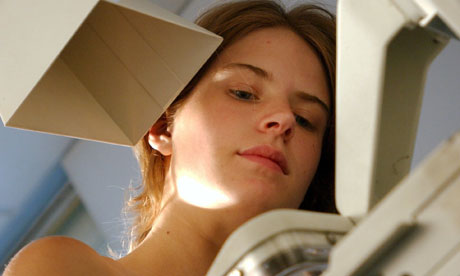
The dilemma: You might think this is a no-brainer: of course it's best to find out if you have breast cancer as soon as possible. Up to one in eight women get the disease, so surely you'd want to be tested, catch it early and get treatment to improve your chances of survival? But, in fact, while screening may catch the disease early, there's no guarantee.
Screening for diseases before they become clinically apparent is only useful if you can improve the chances of survival (or improve quality of life). To do that you need to understand what the disease would do if you left it alone – and not all diseases progress. With a type of tumour called ductal carcinoma in situ, which makes up 20% of the cancers found in breast screening, the tumour is confined to the milk ducts and there is just a 50% of chance it could develop into a full-blown cancer.
A recent study from the Nordic Cochrane Centre found that a third of cancer diagnoses made as a result of screening were not cancers. And while the NHS claims that screening saves 1,347 lives a year, Dr Klim McPherson, an Oxford professor in public health epidemiology, said in a letter to the BMJ last week that research showed that the more likely number was 500 lives a year. McPherson added that to prevent one death you would need to screen 1,000 women over 10 years. To throw even more doubt on the subject of testing, a paper in this week's BMJ says that screening hasn't improved mortality rates. Instead, improvements in treatment and healthcare processes were responsible for falls in death rates for breast cancer, and countries experienced the same falls whether or not they had screening.
The solution: So how can you decide if screening is for you? You may feel that one life in 1,000 could be yours and that screening is worth it. Few doctors will suggest that women should not undergo the procedure. It is a common disease and any woman who gets it would naturally wonder if she should have been screened and treated earlier.
However, a letter in the Sunday Times this week from some of the greats in cancer research argues that if women knew what the clinical evidence was they might turn down the offer of screening. It is really up to you. The mammogram is uncomfortable, no one can really say it's going to save your life if you're found to have breast cancer, and it may cause you unnecessary worry. I know a few doctors who have refused screening for themselves. But if you feel that if you got breast cancer and hadn't been screened you would reproach yourself, then you should take the offer.

